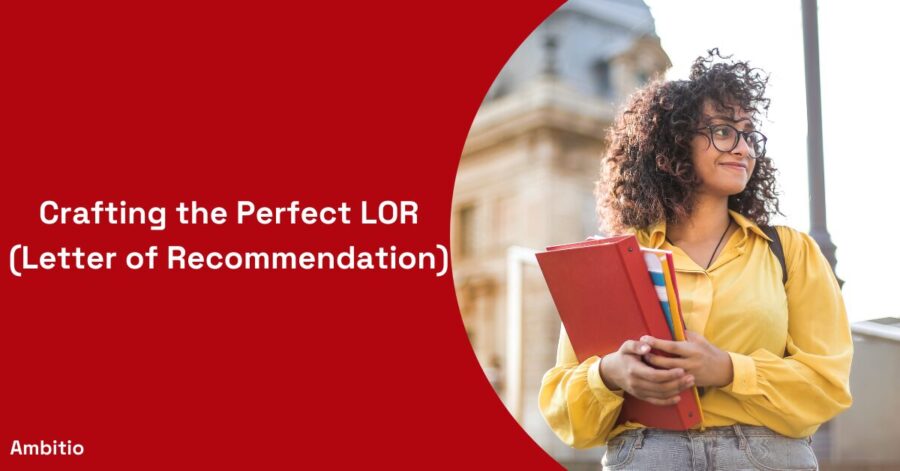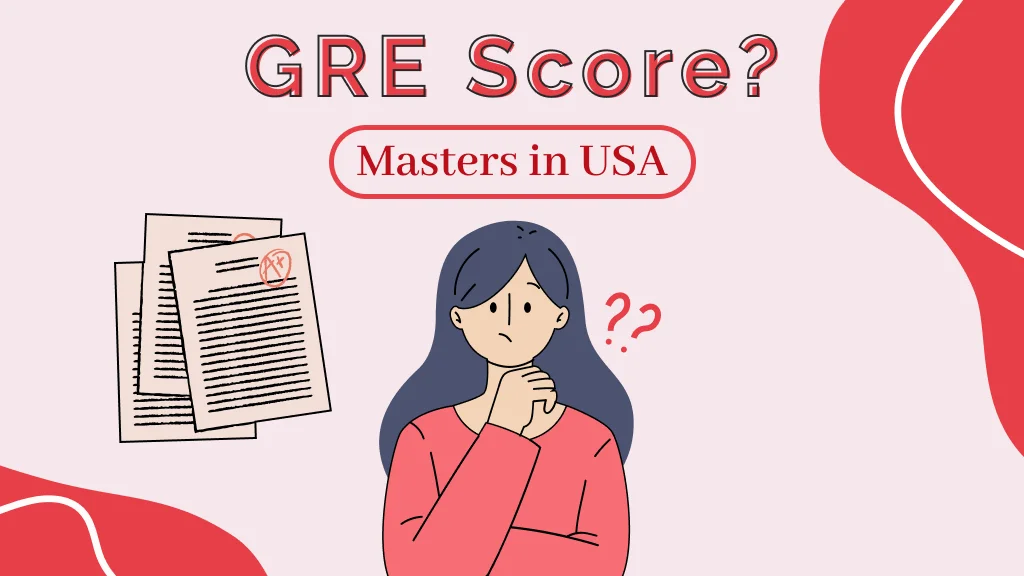14 December 2024
5 minutes read
Crafting the Perfect LOR (Letter of Recommendation): Formats, Samples, and Common Mistakes

The Letter of Recommendation (LOR) is a crucial document in the application process for admission to educational institutions or employment opportunities.
It provides an external perspective on the applicant’s abilities, qualifications, and suitability for the opportunity in question. Whether you are an applicant requesting a recommendation or the recommender writing the letter, understanding the format and guidelines for a well-crafted LOR is essential.
The Importance of Recommendation Letters in the Admission Process
Recommendation letters can be broadly categorized into two types: Academic LOR and Professional LOR. An Academic LOR is usually written by a professor or teacher who can vouch for the applicant’s academic abilities and achievements.
A Professional LOR, on the other hand, is written by a current or former employer, supervisor, or someone else who can speak about the applicant’s work experience and professional attributes.
These letters provide a comprehensive view of the applicant’s capabilities and are often considered by the admission committee alongside other documents such as the Statement of Purpose (SOP), resume, and academic records.
Academic LOR vs. Professional LOR
The content and focus of the Academic and Professional LORs vary significantly. An Academic LOR typically includes details about the applicant’s academic performance, classroom participation, research skills, and any other relevant academic accomplishments.
| Aspect | Academic LOR | Professional LOR |
|---|---|---|
| Purpose | Recommends academic abilities | Highlights job-related skills |
| Content | Academic performance, projects | Work achievements, skills |
| Author’s Role | Professors, advisors | Supervisors, managers, colleagues |
| Focus | Intellectual capabilities, potential | Job performance, teamwork, leadership |
| Examples | Coursework, research | Projects, accomplishments |
| Impact | Admission to education programs | Job applications, career advancement |
| Tone | Scholarly, analytical | Professional, outcome-oriented |
| Format | Formal structure, educational context | Business format, job responsibilities |
| Key Traits | Academic strengths, dedication | Work ethic, adaptability, collaboration |
| Use Cases | University admissions | Job applications, promotions, changes |
| Length | Usually 1-2 pages | Typically 1 page or shorter |
| Customization | Tailored to specific programs | Tailored to job descriptions, industry |
| Critical Elements | Research potential, passion for subject | Job-specific skills, achievements |
Key Highlights to Include in Your LOR
The Letter of Recommendation (LOR) is not just a document but a testament to an applicant’s skills, abilities, and achievements. Therefore, it is crucial that it is well-crafted, comprehensive, and highlights the most important aspects of the applicant’s profile. Below are the key highlights that should be included in any LOR:
- Formal Introduction: Start the letter with a formal greeting and introduce yourself. Clearly state your name, position, and your professional relationship with the applicant. Mention how long you have known the applicant and in what capacity. This sets the stage for the rest of the letter and establishes your credibility as a recommender.
- Relationship with the Applicant: Elaborate on your relationship with the applicant. Explain how you came to know the applicant and how long you have been acquainted. Discuss the nature of your interactions, whether it was in a professional, academic, or personal capacity. This helps to establish the context of your recommendation.
- Assessment of the Applicant’s Skills and Accomplishments: This is the most crucial part of the LOR. Provide a detailed assessment of the applicant’s skills, strengths, and accomplishments. Be specific and provide examples wherever possible. For instance, if you are recommending the applicant for a Master’s program, discuss their academic achievements, research skills, and any projects or papers they have completed. If it is for a job, focus on their professional skills, work ethic, and achievements in the workplace.
- Comparison with Peers: If possible, compare the applicant with their peers or colleagues. This helps to highlight the applicant’s strengths and uniqueness. For example, you could mention how the applicant ranks among their peers, or discuss any specific qualities that set them apart from others.
- Personal Qualities: Besides professional and academic achievements, it is also important to highlight the applicant’s personal qualities. Discuss their character, attitude, and interpersonal skills. Mention any leadership qualities, team spirit, or other attributes that make the applicant a good fit for the opportunity they are seeking.
- Closing Statement: End the letter with a strong closing statement that summarizes your recommendation. Clearly state that you recommend the applicant for the opportunity they are seeking. Also, provide your contact information and express your willingness to provide further information if required.
Remember, the LOR should not just be a summary of the applicant’s resume or CV. It should provide additional insights and perspectives on the applicant’s abilities and potential.
Be sincere and honest in your assessment. Avoid exaggeration, but also do not hesitate to highlight the applicant’s strengths and achievements. Ultimately, a well-crafted LOR can make a significant difference in the applicant’s chances of success.
How to Request a Letter of Recommendation
When requesting a LOR, it is important to approach the right person, someone who knows you well and is willing to write a strong recommendation.
Providing them with all the necessary information, including your resume, statement of purpose (SOP), and any other relevant documents, can help them craft a more compelling and personalized LOR. It is also advisable to request the recommendation well in advance to give the recommender ample time to prepare the letter.
Format and Template Guidelines for Writing an LOR
While there is no fixed format for writing an LOR, there are certain guidelines that should be followed to ensure that the letter is well-structured and impactful. A typical LOR includes the following sections:
- Introduction: Begin the letter with a formal greeting and introduce yourself, including your professional relationship with the applicant.
- Relationship with the Applicant: Explain how long you have known the applicant and in what capacity. Highlight the interactions and experiences that have given you insight into the applicant’s abilities.
- Assessment of the Applicant: Offer a comprehensive assessment of the applicant’s skills, accomplishments, and potential. Be specific and provide examples wherever possible.
- Comparison with Peers: If possible, compare the applicant with their peers to highlight their strengths and uniqueness.
- Closing: End the letter with a strong closing statement that summarizes your recommendation and provides your contact information for any follow-up questions.
Common Mistakes to Avoid in an LOR
Common mistakes to avoid in a LOR include being too generic, overly focusing on grades or scores, failing to provide specific examples of the applicant’s accomplishments, and not following the submission guidelines of the institution or organization. Additionally, avoid including any negative comments or criticisms unless they are absolutely necessary and can be framed constructively.
The Importance of Personalizing Your LOR
A personalized LOR that includes specific details about the applicant’s accomplishments, skills, and potential can have a much greater impact than a generic letter.
It is important to take the time to tailor the letter to the applicant and the opportunity they are applying for. This shows that you have put thought and effort into the recommendation and can make a significant difference in the applicant’s chances of success.
The Role of the LOR in the Overall Application
The LOR is just one component of the overall application, but it plays a crucial role in providing an external perspective on the applicant’s abilities and potential.
It is important to ensure that the LOR complements the other components of the application, such as the resume and SOP, and provides a comprehensive and well-rounded view of the applicant. Ultimately, a well-crafted LOR can make a significant difference in the applicant’s chances of success.
FAQs
What is the difference between an academic LOR and a professional LOR?
An academic LOR is written by a professor or teacher and focuses on the applicant’s academic abilities and achievements. A professional LOR is written by a current or former employer or supervisor and focuses on the applicant’s work experience and professional attributes.
What are the common mistakes to avoid while writing a LOR?
Common mistakes to avoid include being too generic, overly focusing on grades or scores, failing to provide specific examples of the applicant’s accomplishments, and not following the submission guidelines of the institution or organization.
What should I include in my LOR?
A well-crafted LOR should include a formal introduction, a description of the relationship with the applicant, a detailed assessment of the applicant’s skills and accomplishments, a comparison with peers, and a strong closing statement.
How do I request a Letter of Recommendation?
When requesting a LOR, approach someone who knows you well and is willing to write a strong recommendation. Provide them with all the necessary information, including your resume, statement of purpose (SOP), and any other relevant documents, to help them craft a compelling and personalized LOR.

You can study at top universities worldwide!
Get expert tips and tricks to get into top universities with a free expert session.
Book Your Free 30-Minute Session Now! Book a call now




























